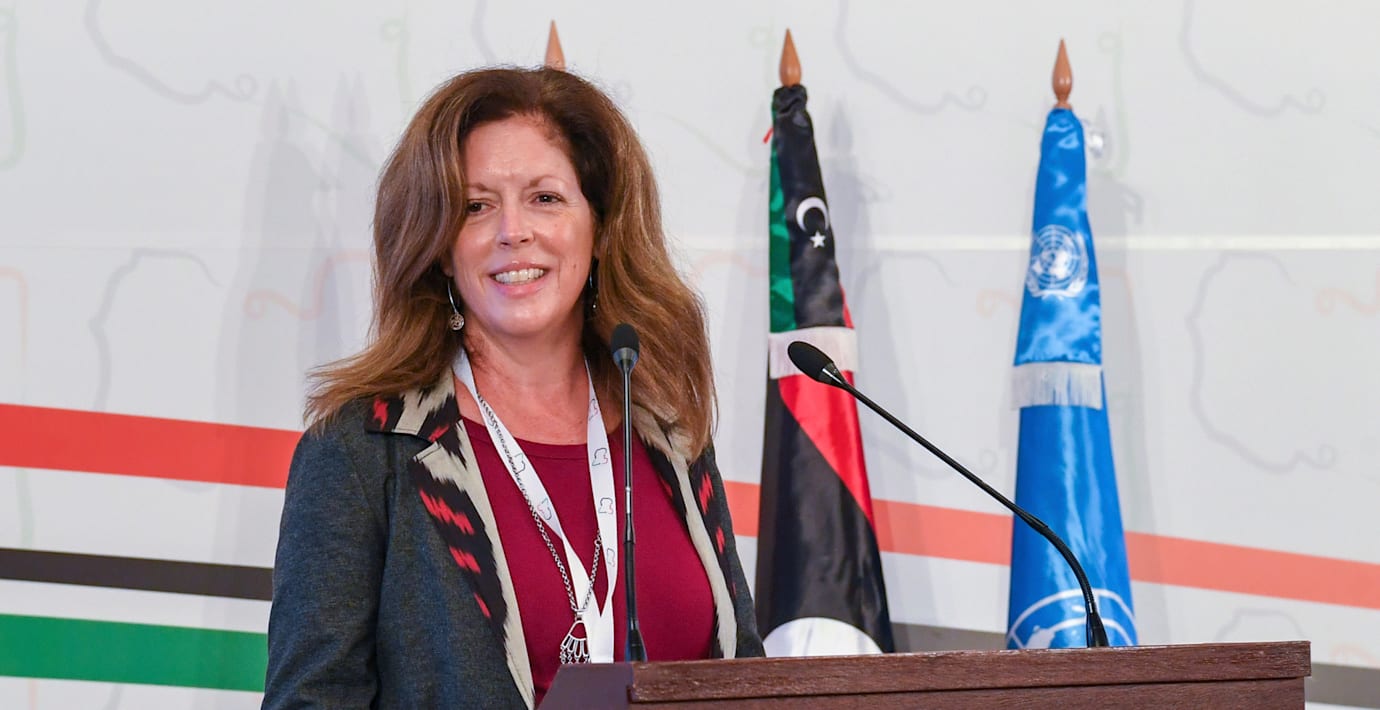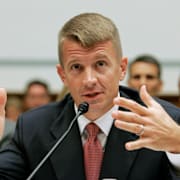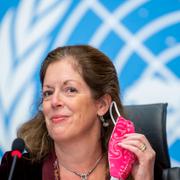
FN: Parterna överens – blir val i Libyen nästa år
Libyen kommer att hålla ett nationellt val på julafton nästa år, uppger FN:s sändebud Stephanie Williams.
Parterna som deltar i de FN-ledda fredssamtalen i Tunisien har kommit överens om att hålla val om både presidentposten och parlamentet, skriver AFP.
De två rivaliserande parterna är den nationella samförståndsregeringen (förkortat GNA) och krigsherren Khalifa Haftars styrkor, som kallas Libyens nationella armé (LNA).
Läs mer
bakgrund
Konflikten i Libyen
Wikipedia (en)
The Second Libyan Civil War is an ongoing conflict among rival factions seeking control of Libya. After erupting in 2014, it is now mostly between:
the House of Representatives, elected in 2014 with a low turnout (18%), relocated to Tobruk, which appointed Marshal Khalifa Haftar as commander-in-chief of the Libyan National Army with the mission of restoring its sovereignty over the whole of Libyan territory.
the Government of National Accord, led by Prime Minister Fayez al-Sarraj, based in the capital Tripoli and established after failed military coups and the relocation of the House of Representatives to Tobruk.The General National Congress, based in western Libya and backed by various militias with some support from Qatar and Turkey, initially accepted the results of the 2014 election, but rejected them after the Supreme Constitutional Court nullified an amendment regarding the roadmap for Libya's transition and HoR elections.[13] The House of Representatives (or Council of Deputies) is in control of eastern and central Libya and has the loyalty of the Libyan National Army, and has been supported by airstrikes by Egypt and the UAE. Due to controversy about constitutional amendments, HoR refused to take office from GNC in Tripoli, which was controlled by armed islamist groups from Misrata. Instead, HoR established its parliament in Tobruk, which is controlled by General Haftar's forces. In December 2015, the Libyan Political Agreement was signed after talks in Skhirat, as the result of protracted negotiations between rival political camps based in Tripoli, Tobruk, and elsewhere which agreed to unite as the Government of National Accord. On 30 March 2016, Fayez Sarraj, the head of GNA, arrived in Tripoli and began working from there despite opposition from GNC. The GNA's authority remains unrecognized by HoR, as specific details acceptable to both sides have not yet been agreed upon.
In addition to those three factions, there are: the Islamist Shura Council of Benghazi Revolutionaries, led by Ansar al-Sharia, which had the support of the GNC and was defeated in Benghazi in 2017; the Islamic State of Iraq and the Levant's (ISIL's) Libyan provinces; the Shura Council of Mujahideen in Derna which expelled ISIL from Derna in July 2015 and was later itself defeated in Derna by the Tobruk government in 2018; as well as other armed groups and militias whose allegiances often change.In May 2016, GNA and GNC launched a joint offensive to capture areas in and around Sirte from ISIL. This offensive resulted in ISIL losing control of all significant territories previously held in Libya. Later in 2016, forces loyal to Khalifa al-Ghawil attempted a coup d'état against Fayez al-Sarraj and the Presidential Council of GNA.
Libyen
Omni är politiskt obundna och oberoende. Vi strävar efter att ge fler perspektiv på nyheterna. Har du frågor eller synpunkter kring vår rapportering? Kontakta redaktionen


